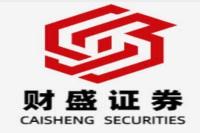首发经济:中国经济增长的下一个引擎?
元描述: 深入探讨首发经济的崛起、政策支持、投资机遇以及未来发展趋势,解读首发经济概念股的投资价值,并分析其对中国经济增长的潜在影响。 关键词:首发经济,首店经济,概念股,投资,中国经济,政策支持,发展趋势,产业升级
Whoa! Hold onto your hats, folks! The Chinese economy is buzzing with a new term: First-Arrival Economy (or "Shoufa Jingji" in Mandarin). It's not just a fleeting trend; it's a significant economic force shaping China's future, and possibly, the world's. Think of it as the "first mover advantage" writ large, applied to entire industries and cities. We're talking about the ripple effect of a groundbreaking new product launch, a revolutionary business model, the opening of a flagship store – the kind of events that capture imaginations and drive economic growth. This isn't just about making a splash; it's about building a sustainable engine for growth. From high-level government pronouncements to the frenzied activity on the stock market, the First-Arrival Economy is undeniably capturing the attention of investors, entrepreneurs, and policymakers alike. This deep dive explores the phenomenon, unpacking the intricacies of this rapidly expanding sector, revealing its potential, and addressing some frequently asked questions. Get ready to unlock the secrets of this exciting new economic frontier! We'll examine government initiatives, analyze market trends, and dissect the investment opportunities within this burgeoning field. Buckle up – it's going to be a wild ride! This isn't your grandpappy's economy; this is the future, and it's happening now.
首发经济:定义与影响
So, what exactly is the First-Arrival Economy? It's more than just opening a new store; it’s a holistic approach encompassing a wide spectrum of economic activities centered around "firsts." Think of it as a chain reaction: the initial launch of a new product or service, the unveiling of a groundbreaking business model, the establishment of a flagship store (often a “首店” or Shǒudiàn), the opening of a new R&D center – even the establishment of a company's headquarters. All these "firsts" contribute to a powerful economic ecosystem.
The impact is far-reaching. It's not just about boosting brand awareness; it's about driving industrial upgrades, revitalizing urban commercial sectors, and better fulfilling the needs of consumers. It's about creating a dynamic equilibrium between supply and demand, leading to a more sustainable and robust economy. In essence, it's a powerful catalyst for economic growth and modernization.
政府政策与支持
The Chinese government is fully behind the First-Arrival Economy. High-level meetings, including the 20th Central Committee's Third Plenary Session and the Central Economic Work Conference, have explicitly mentioned the need to foster the development of this sector. This isn't just lip service; concrete policies are being implemented at both the national and local levels. Cities like Shanghai have launched aggressive initiatives, offering substantial financial incentives to attract high-profile brands and support the launch of new products and services. These initiatives often include tax breaks, subsidies, and streamlined approval processes. This concerted effort demonstrates the government's commitment to driving innovation and economic growth through the First-Arrival Economy.
首发经济概念股的投资机遇
The rise of the First-Arrival Economy has naturally ignited excitement in the capital markets, leading to a surge in interest in related stocks. Numerous companies associated with this sector have seen significant gains, with some experiencing dramatic increases in their stock prices. However, it's crucial to approach investments with caution and conduct thorough due diligence. Simply because a company is associated with the First-Arrival Economy doesn't automatically guarantee success. Investors should carefully analyze the financial health, business model, and long-term growth potential of any company before making an investment decision. While some companies, like Miao Ke Lan Duo (妙可蓝多), a recipient of a Shanghai First-Arrival Economy award, have shown promising growth, it's essential to remember that the market is volatile and past performance is not indicative of future results.
案例分析:一些值得关注的公司
Let's take a look at a few companies that exemplify the First-Arrival Economy's impact:
-
Miao Ke Lan Duo (妙可蓝多): This company, a recipient of a Shanghai First-Arrival Economy award, showcases the success that can be achieved by embracing innovation and strategic positioning within the sector.
-
Yao Wang Technology (遥望科技): Their innovative approach to integrating online and offline channels through their "digital-real fusion" commercial complex exemplifies the forward-thinking mindset driving success in this arena.
-
Ling Nan Share (岭南股份): This company's growth reflects the growing demand for experiences and high-quality goods associated with the First-Arrival Economy.
首发经济的未来发展趋势
The First-Arrival Economy is far from a flash in the pan. Its continued growth is expected to be driven by several key factors:
-
Increasing Consumerism: A growing middle class with greater disposable income fuels demand for new and exciting products and services.
-
Technological Advancements: Innovation in technology continues to create opportunities for new products and business models.
-
Government Support: Continued government support ensures a conducive environment for the continued growth of the sector.
-
International Collaboration: Attracting international brands and fostering collaboration will further enhance the dynamism of the First-Arrival Economy.
However, challenges remain. Maintaining momentum and avoiding over-reliance on short-term gains will be crucial. This requires a focus on sustainable development and avoiding speculative bubbles.
常见问题解答 (FAQ)
Here are some commonly asked questions about the First-Arrival Economy:
Q1: Is the First-Arrival Economy just a fad?
A1: No, it's a fundamental shift in how businesses operate and consumers shop, reflecting a deeper trend towards innovation and experience-driven consumption. Government support further solidifies its long-term prospects.
Q2: How risky is investing in First-Arrival Economy stocks?
A2: Like any investment, there's inherent risk. Thorough due diligence, understanding the company's fundamentals, and diversification are crucial for mitigating this risk.
Q3: What role does technology play in the First-Arrival Economy?
A3: Technology is a cornerstone. From e-commerce platforms to innovative product design, technology is crucial for creating and marketing new products and services.
Q4: How does the First-Arrival Economy benefit consumers?
A4: Consumers benefit from access to a wider variety of products, enhanced shopping experiences, and increased competition leading to better value.
Q5: What are the biggest challenges facing the First-Arrival Economy?
A5: Maintaining sustainable growth, preventing speculative bubbles, and ensuring equitable distribution of benefits are major challenges.
Q6: How can I learn more about the First-Arrival Economy?
A6: Stay updated on financial news, industry reports, and government publications. Attend industry events and conferences to gain firsthand insights.
结论
The First-Arrival Economy represents a significant opportunity for China's economic growth. While challenges exist, the potential for long-term success is undeniable, fueled by government support, technological innovation, and a dynamic consumer market. While investment opportunities abound, careful research and a balanced approach are paramount. The First-Arrival Economy isn't just a trend; it's a transformative force shaping the future of commerce and consumption in China and beyond. It's a story unfolding in real-time, presenting both exciting prospects and significant challenges. Staying informed and adaptable will be key to navigating this dynamic landscape.



